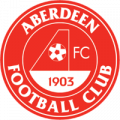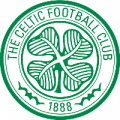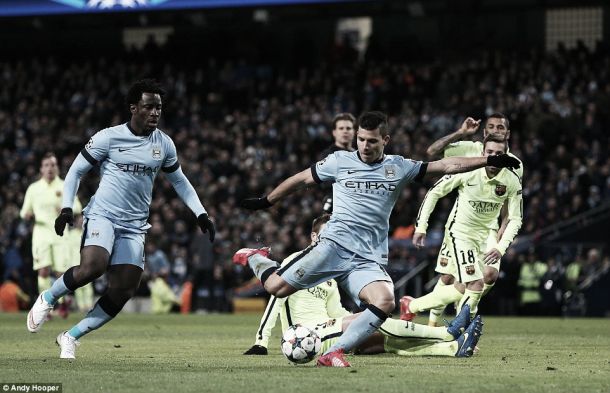With hopes of a second successive Premier League trophy slipping away, Manchester City fans have been left clutching at straws to find any sort of positive in the 2014/15 season.
Disappointing home defeats to North East duo Newcastle and Middlesbrough put hopes of a domestic cup double over before either really started, while the potential for a nine-point deficit with leaders Chelsea means that the Premier League title race could be all but over.
The decline of key players, the failure of others to step up and make a difference and tactical inadequacy bordering on naïvety has meant that few see City as realistic Champions League contenders, and a first-leg deficit means that progression at the Camp Nou looks close to impossible. So what exactly do the Blues need to do to make their way through to the quarter-finals?
Basically, win by two goals. Or grab a 2-1 win and hold their nerves for a penalty shoot-out. Simple, really.
Obviously, stopping Lionel Messi helps. But then, everybody knows that - and it doesn't tend to do them a blind bit of good. After 2014 was well and truly the year of Cristiano, Messi has been back to close to his dazzling best in the first few months of 2015, as evidenced by close to a complete performance against Eibar this weekend, where he took out most of the team with one run, slammed home a penalty and even scored a header, something he apparently can't do.
Of course, the first leg at the Etihad was proof that, even if you do stop Messi - as Joe Hart did with a last-minute penalty save which could still prove decisive - Barcelona have such a wealth of attacking talent that it might not even matter. Luis Suárez and Neymar, love them or hate them, would be the star men for pretty much every other team in the world, and any lapse in concentration from an increasingly porous City backline will be punished. They have, after all, scored 16 goals in their last five games in all competitions.
Given the obvious quality which City have had in their squad over the past few seasons, the reasons for their continued European failures have often remained unclear.
One of these reasons has unavoidably been the consistent tactical failures ahead of big games, and the decision to field both Sergio Agüero and Edin Džeko for the first leg was widely derided as foolhardy and overly gung-ho. However, City travel to Catalonia needing to score at least twice to keep their hopes alive, meaning Manuel Pellegrini has decisions to make.
City managed to score goals playing what was essentially 4-6-0 earlier in the season with Agüero, Džeko and Stevan Jovetić all injured, and they have enough goalscoring ability in midfield that some derivation of 4-5-1 can be successful. Before the Eibar result on Saturday, Barça had conceded at least once for five games in a row, and nine out of the previous ten, so to grab a goal is far from an impossibility.
Another criticism which has been levelled at the Citizens is an inability to deal with the pressure of the big stage, and stages don't come much bigger than the Camp Nou. Having failed to earn a point at home to Burnley this weekend, the step up in quality could be seen as a daunting, insurmountable prospect or an springboard opportunity to catalyse a final end-of-season push.
Whatever the result, the level of performance against Barça will say a lot about the character of this team. Pellegrini can take heart from victories over Bayern Munich and Roma earlier this season, but performances in other big games this season - against Arsenal, CSKA Moscow, Liverpool, and others - mean that the magnitude of occasion is no guarantee of a match-winning performance.
So, to summarise. Get the tactics right, score a couple of goals, stop potentially the scariest strikeforce in world football while taking some sort of a foothold in the midfield, and keep your heads in a thunderous, nerve-wracking atmosphere. Simple.
If all else fails, City can at least fall back on a tried-and-tested Plan B: give the ball to Sergio.







































